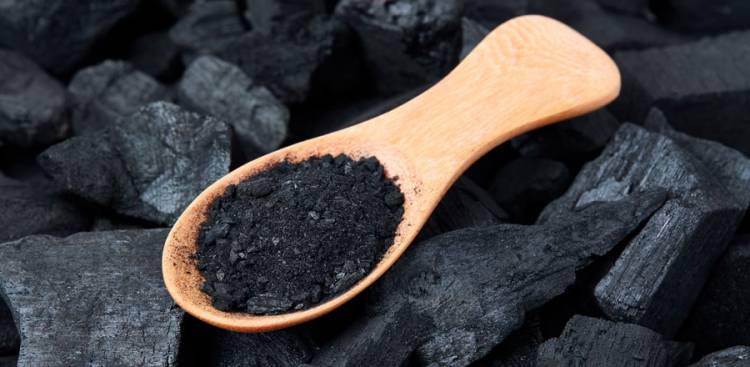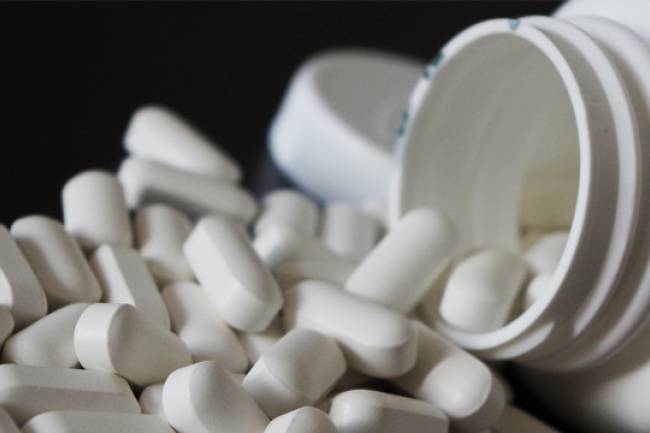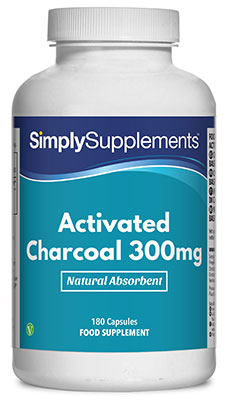Activated charcoal is the latest healthcare craze to hit the market in a big way. With potential applications and benefits across a variety of health areas, it's not surprising to see the sudden surge in consumer interest.
However, it's important that you know exactly what activated charcoal is before you start incorporating it into your lifestyle.
Thankfully, you've come to the right place. Here's a detailed look at the potential health benefits of activated charcoal and how it may be able to help you.
The Basics
Activated charcoal has been used for medicinal purposes since the 19th century. It is made using carbon, which is combined with different gases and exposed to very high temperatures.
Through this process, called activation, the carbon develops pores (little pockets of space on its surface) that vastly increase the surface area of the nutrients.
It is this surface area that makes activated charcoal so popular with consumers, due to its supposed ability to catch chemicals and toxins in your body.
Activated charcoal that is used for medical applications is made using organic sources that possess high carbon content, like coconut husks. You are more likely to recognise regular charcoal as a fuel source that you would use for fires and barbecues, however, additional toxins and chemicals have been added to charcoal of this nature.
It's understandable to have some reservations about ingesting something with ‘charcoal' in its name, but
activated charcoal used in supplements and healthcare products is safe to ingest as long as you know how it works. We'll get onto that later in the article.
Across the market, you may find activated charcoal in a variety of different forms, solutions and products, including:
- Capsules
- Creams and gels
- Face masks
- Toothpastes
- Body cleansers and soaps
The main claim to fame for activated charcoal comes from its popular use in hospitals and emergency situations in dealing with poisons that have been ingested orally. The World Health Organisation has included activated charcoal in its list of essential medicines, meaning you'll likely find it in all ambulances, pharmacies and medical facilities. As time has gone on, more and more potential applications for activated charcoal have arisen, conjuring a reputation as a must-have home safety precaution.
What Is Activated Charcoal Used For?
Despite the varying reports and information you might read online, scientific testing for activated charcoal appears to be quite limited and continues to be ongoing. Further testing needs to be performed before all of the reported applications and benefits of activated charcoal are verified. All the supposed activated charcoal uses we list in this article should be taken with a grain of salt, and may yield different results across individual cases.
Water Purification and Detoxing
As well as being used to combat poisons, activated charcoal has been used industrially for thousands of years to help with water purification. Large-scale filtration systems across the country utilise activated charcoal (industrially more commonly called activated carbon) because of its ability to catch, retain and remove harmful chemicals.
Thanks to the incredible surface area activated charcoal possesses (a single gram is believed to have a surface area of more than 3,000m2), like with poisons it may absorb and retain toxins using a process called adsorption.
Adsorption
This sounds incredibly similar to the process of absorption, which you might be more familiar with. However, there is a very clear distinction between the two that you need to be aware of.
Adsorption involves the adhesion of atoms, molecules and ions onto the surface of a larger absorbent. Absorption would involve those molecules to permanently dissolve into the entirety of the absorbent, not just the surface.
Activated charcoal is used in supplement form to help remove and detoxify your body using the properties above. Processed foods may contain manufactured chemicals and ingredients in an effort to help improve shelf life and lifespan; however these might not be beneficial to your health. Many believe activated charcoal may be able to catch these toxins before they are absorbed by the small intestines into the blood stream.
However, even though the potential benefits of activated charcoal and detoxifying may sound enticing, it is very important to know that you must make sure you drink plenty of water alongside activated charcoal. Like soluble fibres, activated charcoal also adsorbs water molecules too, which if not remedied may lead to dehydration. Remember to make sure you drink a big glass of water alongside any activated charcoal you ingest.
Digestive Health
Like with detoxing, many experts believe that due to the surface area present in activated charcoal, the use of adsorption may also be directed to help benefit your digestive health. Typically in this particular area of health activated charcoal is widely advertised to help prevent or provide relief from bloating and gas.
It is believed that taking an activated charcoal supplement either before or immediately after a meal may help to adsorb substances that produce gas in your stomach. "The 'black stuff' works by 'soaking' up less harmful, but uncomfortable, acids and gasses that can accumulate in the stomach. It's these substances that are often responsible for indigestion and acid reflux."1 It is also believed that activated charcoal may be able to contribute your overall digestive health, particularly your intestines.
Your large and small intestines have very specific roles that involve the absorption of nutrients from the food and drink you ingest.
- Small intestines: absorb nutrients from what you eat and drink.
- Large intestines: absorb water from waste products to produce stools.
By taking activated charcoal orally, some people claim that harmful and unhealthy substances and toxins are not absorbed by the small intestines.
By reducing the exposure of these chemicals to the cells that line the walls of your small intestines, you may help to prevent their build-up, contributing to and promoting intestinal health. Given that both the intestines and activated charcoal work to extract nutrients in some capacity, it's understandable how people have made the connection between the two. The science, however, is still ongoing to prove this relationship.
Where activated charcoal may have some benefit, there are also some risks you should be made aware of before you use it to promote and support your digestive health. Your large intestines absorb water from waste to help with the formation of healthy stools. Activated charcoal, like we mentioned earlier, may have the potential to absorb large amounts of water from your system. If you don't keep yourself hydrated properly alongside activated charcoal supplementation regimes, you may experience constipation as a side effect.
Cholesterol
There are two different kinds of cholesterol, high-density lipoprotein (good) and low-density lipoprotein (bad). Your body naturally produces all the cholesterol that it requires, and should keep the balance between both good and bad cholesterol at the ideal healthy level. However, your diet may have a direct effect on your cholesterol level, potentially causing it to fluctuate, which if left to its own devices, may increase your risk of suffering more serious health complications and problems in the future.
Processed foods and drinks high in sugar and alcohol content are known to contain processed ingredients and unhealthy chemicals, all of which may contribute to an unhealthy cholesterol level. By supporting your body with the right supplements in conjunction with a healthy diet and exercise, you may be able to promote and support your cholesterol level. That's where activated charcoal is believed to come in handy.
The idea is that activated charcoal may be able to help combat this problem before these chemicals are able to make their way into your blood stream where they might contribute to cholesterol build-up. You may be seeing a trend as we talk about the potential benefits of activated charcoal, and it all comes back to its supposed ability to absorb harmful substances.
Some medical experts believe activated charcoal can absorb harmful toxins, chemicals and substances before they have a chance to get into your blood stream through your intestines. If toxins can't get into your blood stream, they'll have a harder time adding to your cholesterol level.
 Dental Care
Dental Care
One of the most common forms of activated charcoal you might find in pharmacies, dental practices and supermarket shelves is charcoal toothpaste. This is believed to help contribute to the removal of stains that might form on your teeth after you have consumed things like wine and coffee. Leftover molecules that remain on the surface of your teeth may be absorbed by the activated charcoal before they have a chance to discolour your teeth.
If you plan on trying activated charcoal to help support your dental hygiene and health, it's important to be careful when using around sinks and work surfaces. Like ordinary charcoal, activated charcoal possesses a black pigmentation, meaning that it may have the potential to stain work surfaces and porcelain. Be extra careful when using it in your nice clean bathrooms!
Deodorant and Personal Cleanliness
Activated charcoal is available as an alternative to more traditional aerosol deodorants to help combat perspiration and bad smells. When applied directly to the main sources of sweat on your body, like the armpits, the idea is that it will catch the smell-producing microbes before they have a chance to add to your body odour. Activated charcoal in its raw state is odourless and tasteless, but can regularly be found to be mixed with other chemicals to add a more pleasant smell.
Skincare
Your skin is the largest organ of the human body and as such, it deserves to be taken care of too. You'd be amazed with what your skin manages to collect each day, some of which is not beneficial to your health. Dust particles, dead skin, fumes from cars and buses and sweat all have the potential to build up in large quantities on the surface of the skin. If left untreated, these toxins may begin to affect your health.
Activated charcoal can be found as both a facemask and a general body washing solution. The large surface area of activated charcoal molecules is used to remove these toxins from the surface of the skin, opening up pores to allow for effective and efficient perspiration. The pores that are activated into the charcoal molecules also add a coarse texture to the mineral, which many use alongside thorough exfoliation to help clean skin.
Insect Bites
The final application people have taken to using activated charcoal for is for insect bites. This is similar to what we discussed earlier regarding activated charcoal and its usage to help combat poisons. Insect bites and bee stings may involve some form of venom or chemical that agitates the skin and causes pain. Many people believe that activated charcoal may work in some capacity to be able to help remove these chemicals from the body and contribute to reductions in pain and discomfort. As we mentioned during the potential benefits to dental hygiene, because of its pigmentation and colour activated charcoal has the potential to stain, so be careful not to ruin your favourite clothes if you decide to try and apply it to insect stings and bites.
The Rest Is up to You
Now that you know some of the popular applications people are known to use activated charcoal for, it's now up to you to decide if you feel it's something that may be beneficial to your health. It's important to remember that the claims online regarding activated charcoal and its effectiveness may often be just that, claims. Studies and research remain ongoing, so just to be on the safe side it's best to consult your local pharmacist, GP or medical professional for more qualified advice before you jump in with a new treatment scheme involving activated charcoal.

 Dental Care
Dental Care

 Nicole
Nicole 
























